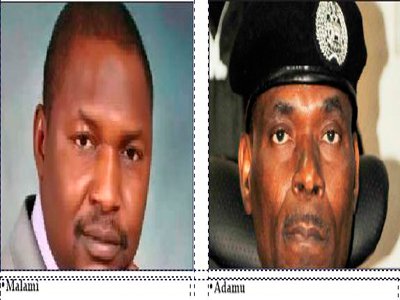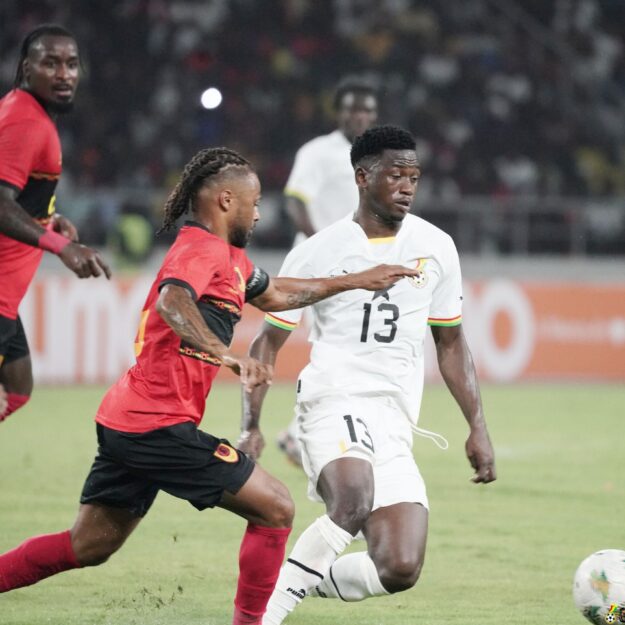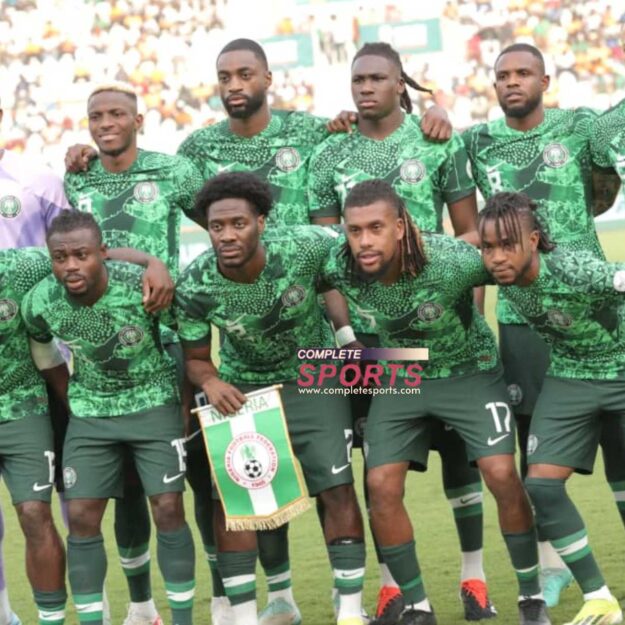
THE controversy over state police has puzzled and engaged many Nigerians for the past one year or more. Last Monday, when a presidential panel on the reform of the Police Special Anti-Robbery Squad (SARS) submitted its report, it almost seemed like President Muhammadu Buhari had endorsed the establishment of state and local government police. But he had not. Commissioned in 2018, the panel took nearly one year to complete its task. Because it was described as a presidential panel, and erroneously presuming that whatever it does or says must have the president’s imprimatur, excited newsmen published the purported new state police deal as if it was a done deal. Miffed by the equivalence, the presidency quickly disabused the minds of the public, insisting that the report was only a body of recommendations meant for another panel to peruse, dissect and possibly glean something concrete from it.
In fact, an examination of the presidential panel report shows that the state police suggestion was a by-product of the more critical issue of police (SARS) brutality that was threatening to undermine democracy and good governance. But having become the main issue, it is clear that the president and his team, not to talk of the rest of Nigeria, must grapple frankly with the idea of state and local government policing. Insecurity has become a major problem threatening to scuttle democracy and engulf the country in flames. Fewer Nigerians have confidence that the government has any idea left on how to tackle it, save perhaps state police. But whether the White Paper panel will embrace the idea of state police wholeheartedly or seek for caveats to vitiate or circumscribe it, while giving the impression it is for it, remains to be seen. The country will wait with bated breath to see what the new panel will decide, or whether the government, after dithering endlessly, will accept a recommendation for state police.
The news suggesting that President Buhari is for state police is, therefore, false. So far, he has not even decided what he wants. There is indeed no proof that he wants state and local government police, nor any constitutional amendment that will attenuate the monarchical powers he and his predecessors inaccurately assumed the constitution gave them. The White Paper panel cannot also be trusted to inspire the revolutionary and constitutional changes needed to tackle the confusion and insecurity enveloping the country. But even if the new panel, which may not be as representative as the first panel, shocks everybody by producing fresh, powerful and progressive recommendations, the states themselves have prepared many booby traps to scuttle the agenda. According to the Nigeria Governors Forum (NGF) chairman, Governor Kayode Fayemi of Ekiti State, the states are not unanimous in supporting the idea of devolved policing.
The governors had met with President Buhari on Friday to deliberate on a number of issues among which was the topic of state police. No consensus was reached, said Dr Fayemi, because the states were not equally financially endowed, and indeed had different dispositions to the idea. For an idea that many thought was virtually sealed and delivered once the first panel submitted its recommendations, it is beginning to look so far-fetched now that it may be irretrievable. It would be remarkable were the president, who has often come across as an archconservative, capable of engaging in dramatic turnarounds and embracing revolutionary ideas of governance beyond his ethical battles for administrative reforms.
Theoretically, the president may like to embrace state police, if it would rid him of the insecurity headache he has battled with for some time; and he may in fact genuinely see it as the panacea to the country’s mounting insecurity. If he does, and if state police becomes institutionalised, it would still not mean that the idea has the capacity to solve the country’s security nightmares. Nor would it mean that the country’s warped federalism would be instantly remedied, whether incrementally, as some hope, or substantially, as a few fantasise. State police is a sound recommendation by all yardsticks. But it is nothing more than tokenism in a sea of grave and mortal wrongs done to the administrative and political structure of the country. Dr Fayemi says some states fear the financial implication of the idea. Of course if policing of the country were to be devolved, the amount budgeted by the federal government in running the police must be distributed to the states. In fact, the fear expressed by the states over their lean resources is the chief reason state police would be inadequate to tackle the security nightmare facing the country. Some of them are not convinced; they think it is just a question of money.
If the presidency finally — but obviously reluctantly — comes round to the idea of state police, it is because they hope it would solve insecurity or at least considerably ameliorate it. It could also be because they are desperate and are at their wit’s end. It would, however, be a piecemeal and eclectic approach to solving a problem that has remained very constitutionally structural and fundamental. The 1999 constitution is defective and presumptuous. It unwisely obliterates ethnic nationalities and the cultural and social differences that underscore their development and existence. There was little federal about it, and nothing that conduces to long-term stability and growth. States were needlessly created by the military in their years in government, and local governments proliferated in such a skewed and vexatious manner that administrative atomisation bred and still continues to breed discontent and rivalry among states and ethnic nationalities. Just creating state police, as great a palliative as it is, will not straighten the constitutional crookedness that has upended the country or dissipate the anger between tribes smouldering below the turbulent surface.
It is shocking and disturbing that any governor could dare to suggest that his state lacks the financial resources to run a state police. Does state policing not start with possessing a healthy idea of what federalism entails, and how a country must be restructured to deliver on that great promise of a developed and highly modern society envisioned by the patriarchs? If governors have no clue how deep and interwoven into the country’s fabric the problem is, how can they be trusted to find a viable and inspiring solution? Nigerians already fear that their governors and political leaders lack the discipline, democratic conviction and temperament to run state police. Assuming they are honest that they really want state police, the problem of running it is probably compounded by their fear of financial inadequacy. For years, the wrong leadership crowd at both federal and state levels had ruled Nigeria. Now, the exhibition of mediocrity is much worse, as many states like Zamfara and Kogi have directly and obscenely showed.
Accustomed to handouts, the disgraceful practice of marching every month to the federal capital to receive their statutory allocations, they are neither challenged to conceive novel financial management measures to raise revenue nor do they have the faintest notion of what a federal constitution and state autonomy should sound and look like. If states are constitutionally made self-sufficient, and do not rely on any allocation from any external source, they could never create the myriads of local governments they have burdened themselves with, or fritter away the resources of their states. Isolating state policing from the vast expanse of structural monstrosities hobbling Nigeria will remain counterproductive. Yes, perhaps it is a small step forward. But it is only a step forward because the Buhari presidency, like its predecessors, lacks the vision and courage to comprehensively do what is right. State police is tokenistic and incapable of addressing the long-term problems of Nigeria.
At the moment, no one knows how a majority of governors will vote on the issue of state police. But Nigerians must be careful not to count on them. They have begun to vacillate. Many of them seem satisfied with the prevailing unitary system that robs Peter’s Value Added Tax from the breweries to Pay teetotaller Paul, and are willing to strangulate and impose on the local governments as heartily as the federal government is imposing on them. At bottom, they care little about federalism or even devolution, and they argue that after all, there is no consensus on what restructuring means. They fear they may not be able to find the funds to run their state police, if federal policing is devolved to the states. Therefore, given their orientation, their grasping habit of accreting powers to themselves, and their imperial approach to leadership which is unlikely to change anytime soon, they may find ingenious ways to repress and suffocate the local governments under them. Half measure, as good as it may appear, is simply not good enough. This is evidenced by the struggle between states and local governments over the financial autonomy of the latter.
Both states and LGs have a joint account into which the statutory allocations to the LGs are paid. In theory, the states are nothing more than conduits to channel LG allocations to their final destinations. In practice, however, the funds rarely reach the right destinations, and are often mishandled by the states. To arrest this anomaly, the Nigerian Financial Intelligence Unit (NFIU), a unit domiciled in the Central Bank of Nigeria (CBN), has ordered that from June, no state government must touch the 20.62 percent share of the federal allocation meant for the LGs. Fearing that this would make the LGs independent of the states, the governors are warming up for a fight with the NFUI, and have accused the organisation of overreaching itself. In addition, some states which have already created local council development areas (LCDAs) will look for ways of sharing the allocations between the LGs and LCDAs as appropriate. The affected states may find a way around this obstacle, but with NFUI breathing down the necks of banks and state accountants, and the governors threatening to go to court, it is not certain how the knot would be untied.
The NFUI/governors disagreement will continue for a while, and it is one more indication of the embarrassing tokenism Nigerian leaders are deploying to tackle deep-seated and fundamental problems. From state police to financial autonomy for LGs, this piecemeal approach will not only fail, it may ultimately doom the republic. Taken in isolation, state policing is a great idea, and financial autonomy for LGs a wonderful measure to curb states lunatic binge on funds. But these are not the only awkward manifestations of Nigeria’s diseased federal constitution. Since the country is shying away from the salient issue of restructuring, but prefers to fiddle only with minor aspects of it, hoping that a huge problem would answer to the command of the smallest of rudders, they must hope that the day will not come when circumstances would seize the initiative from them.
Nigeria is a unitary country with really little democratic achievements to boast of except winning and losing elections. It does not even compare well with the Chinese one-party democratic system. The Nigerian presidency is far too powerful and too incompetent for the good of the country, especially as the recent humiliation of the legislature and judiciary has indicated. Even in the states, governors exercise overbearing authority over the legislature, having lobotomised them, and over the judiciary in so many clever but harmful ways. The rights of the people are routinely trampled upon by disgracefully incompetent, poorly funded and repressive law enforcement and security agencies. But by some miracle, rather than engineer a comprehensive constitutional remake, the government continues to hope that peace and stability would be the result of its half-hearted, awkward and totalitarian exhibitions. Half measure will not work, and the security collapse and maladministration will continue to worsen until an implosion is threatened. It is impossible to expect otherwise, even with state police and financially autonomous LGs.
You may be interested

Van Nistelrooy Applies For Vacant Coventry Coaching Job
Webby - November 16, 2024According to talkSPORT, (Yahoo! Sport) Van Nistelrooy has already applied for the vacant manager role at Championship side Coventry City.This…

Done Deal: Falconets Forward Joins American Club Carolina Ascent
Webby - November 16, 2024Former Falconets forward Opeyemi Ajakaye has joined USL Super League club, Carolina Ascent FC on loan.Ajakaye linked up with Carolina…

Orban’s Lyon Face Provisional Relegation To Ligue 2 Amid Financial Woes
Webby - November 15, 2024Olympique Lyon the club of Nigerian striker Gift Orban, have been handed a provisional Ligue 1 relegation by theDNCG who…

















![American Pastor, David Wilson Seen Eating The Box Of Woman Who Isn’t His Wife [Video]](https://onlinenigeria.com/wp-content/uploads/2019/10/american-pastor-david-wilson-seen-eating-the-box-of-woman-who-isnt-his-wife-video-150x150.jpg)









